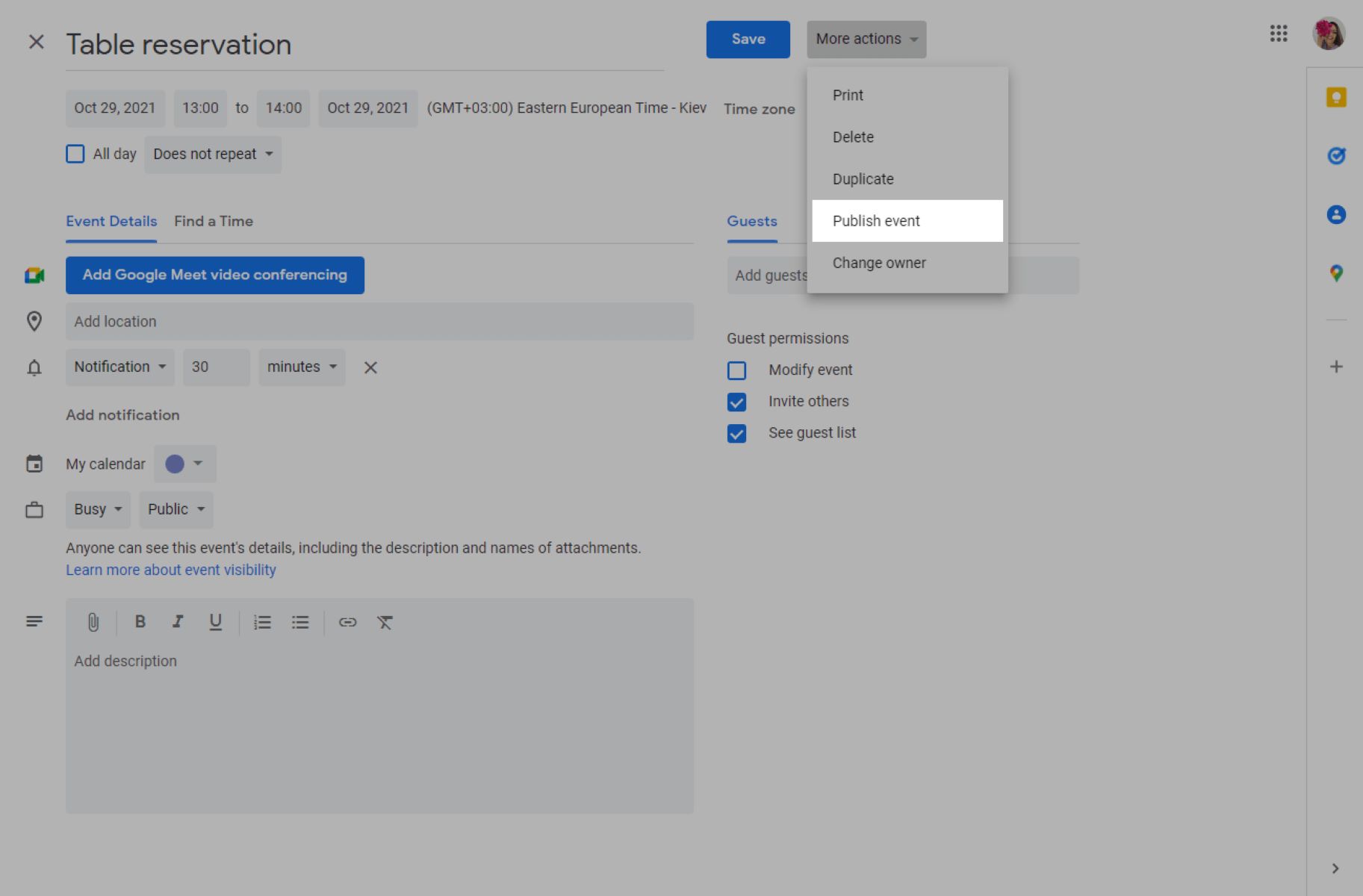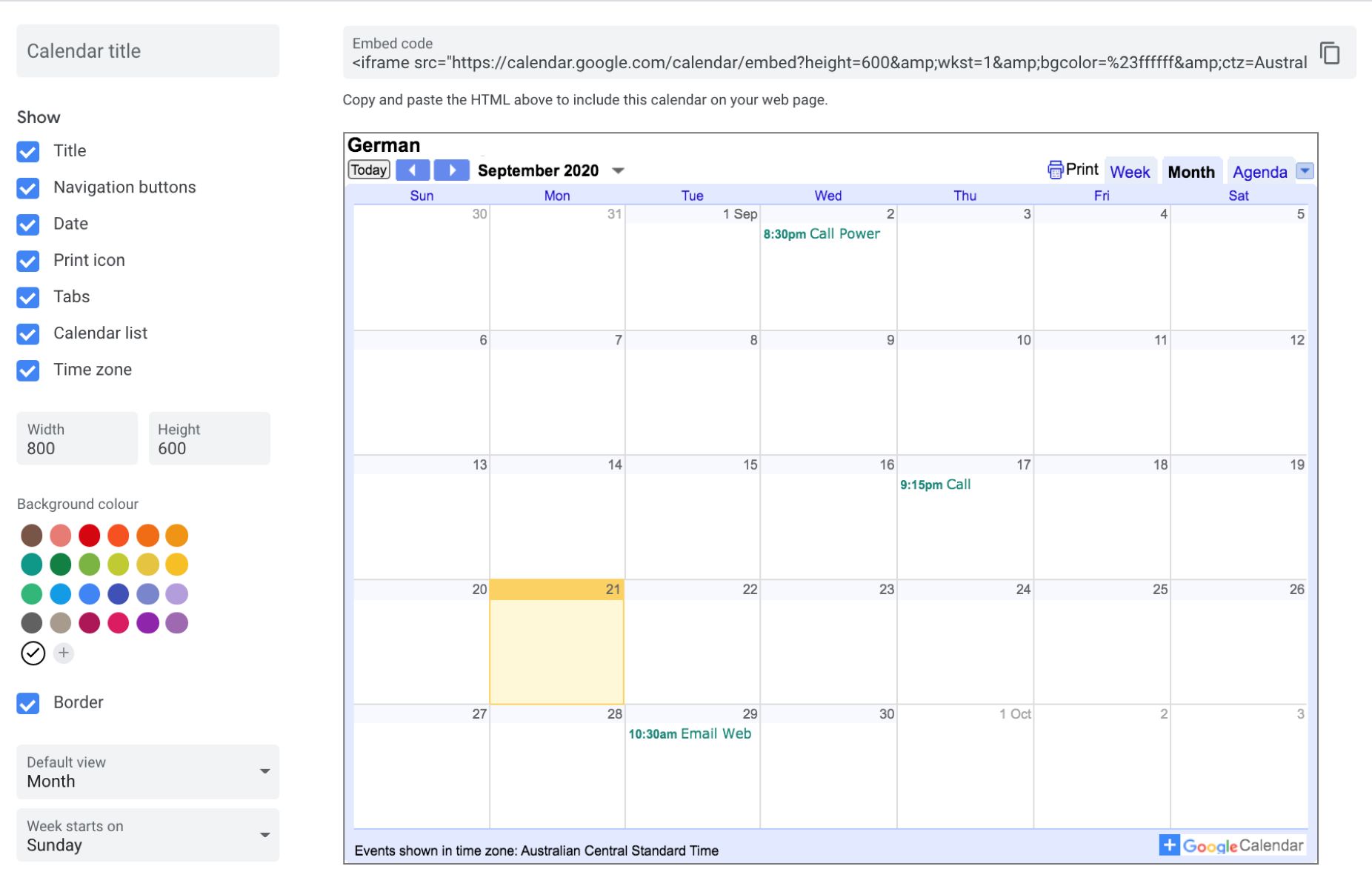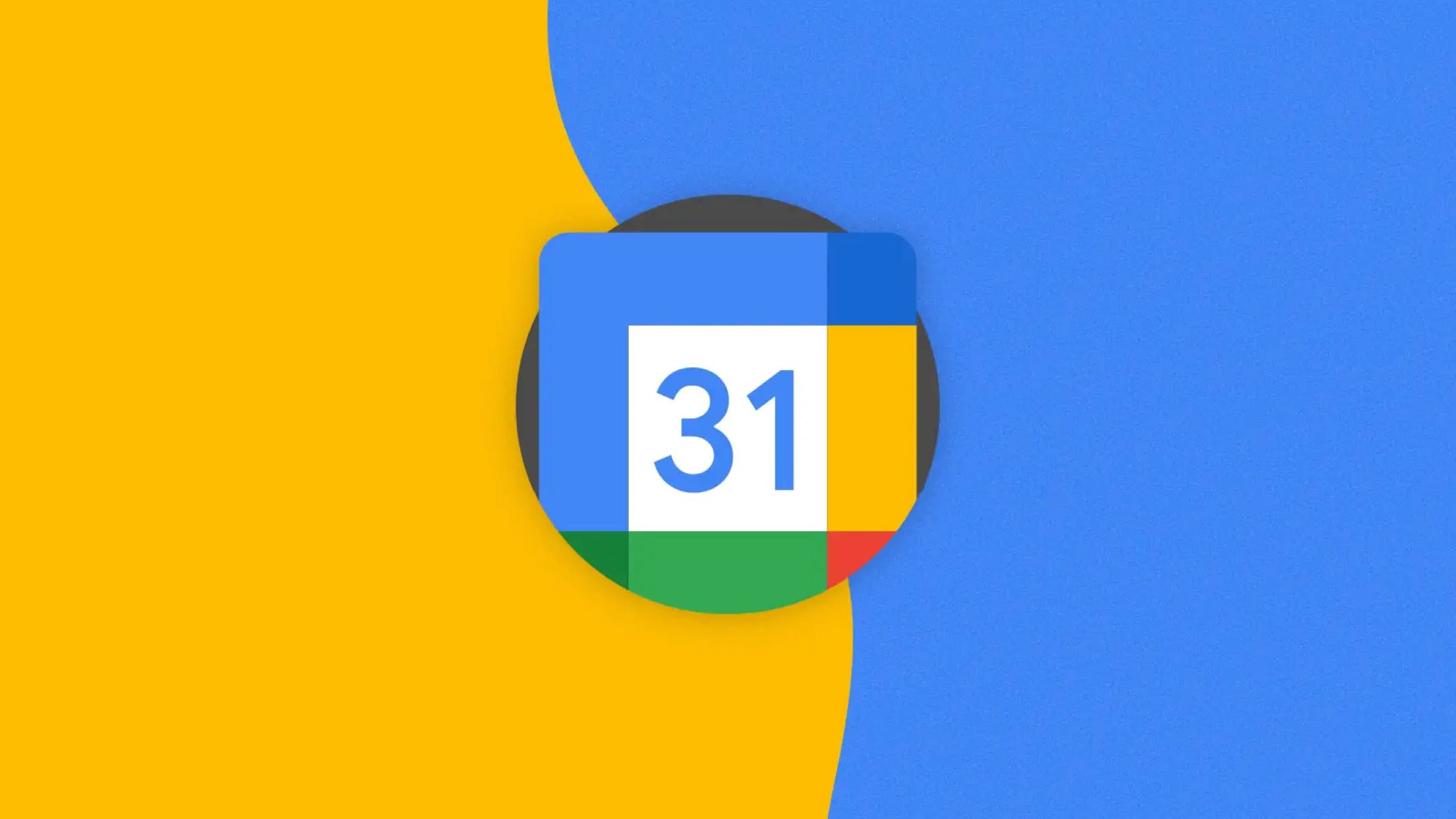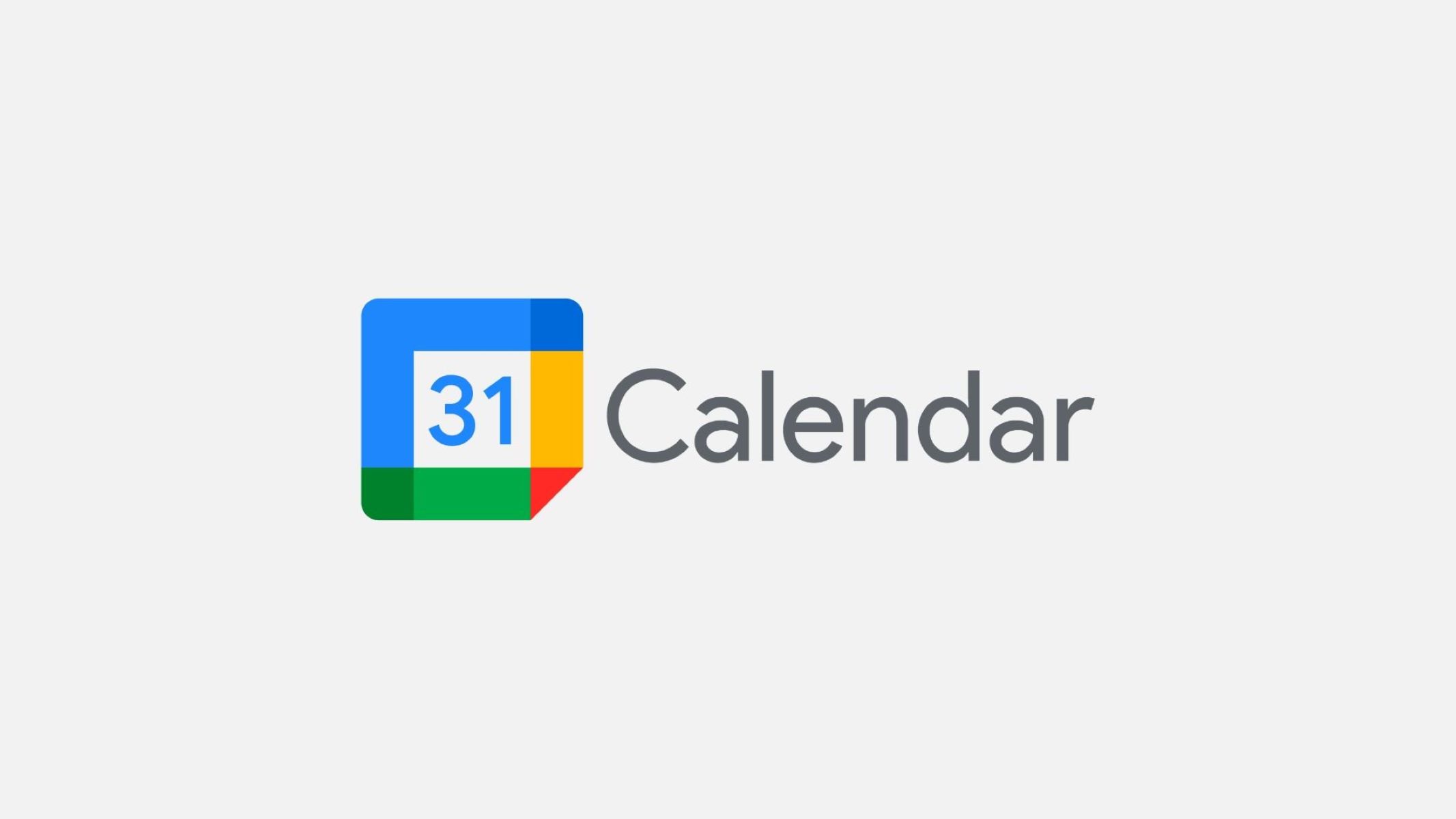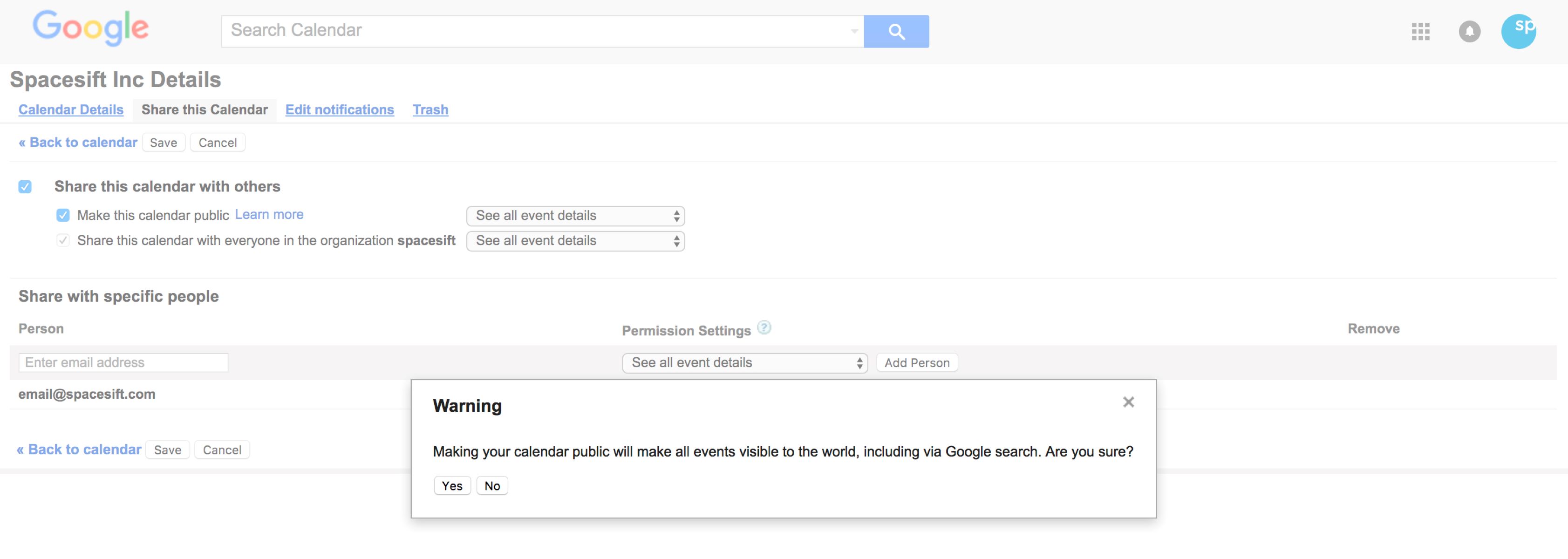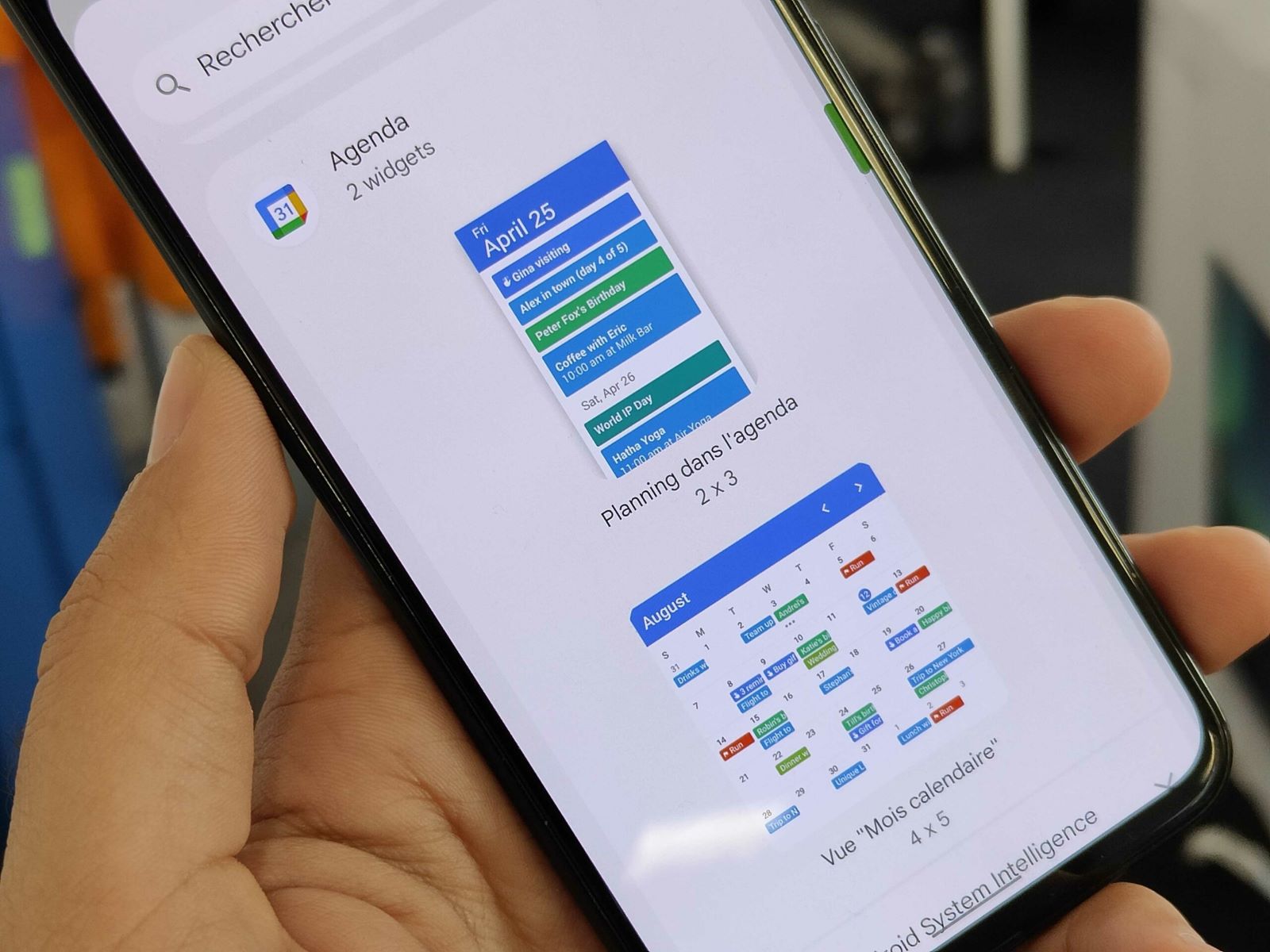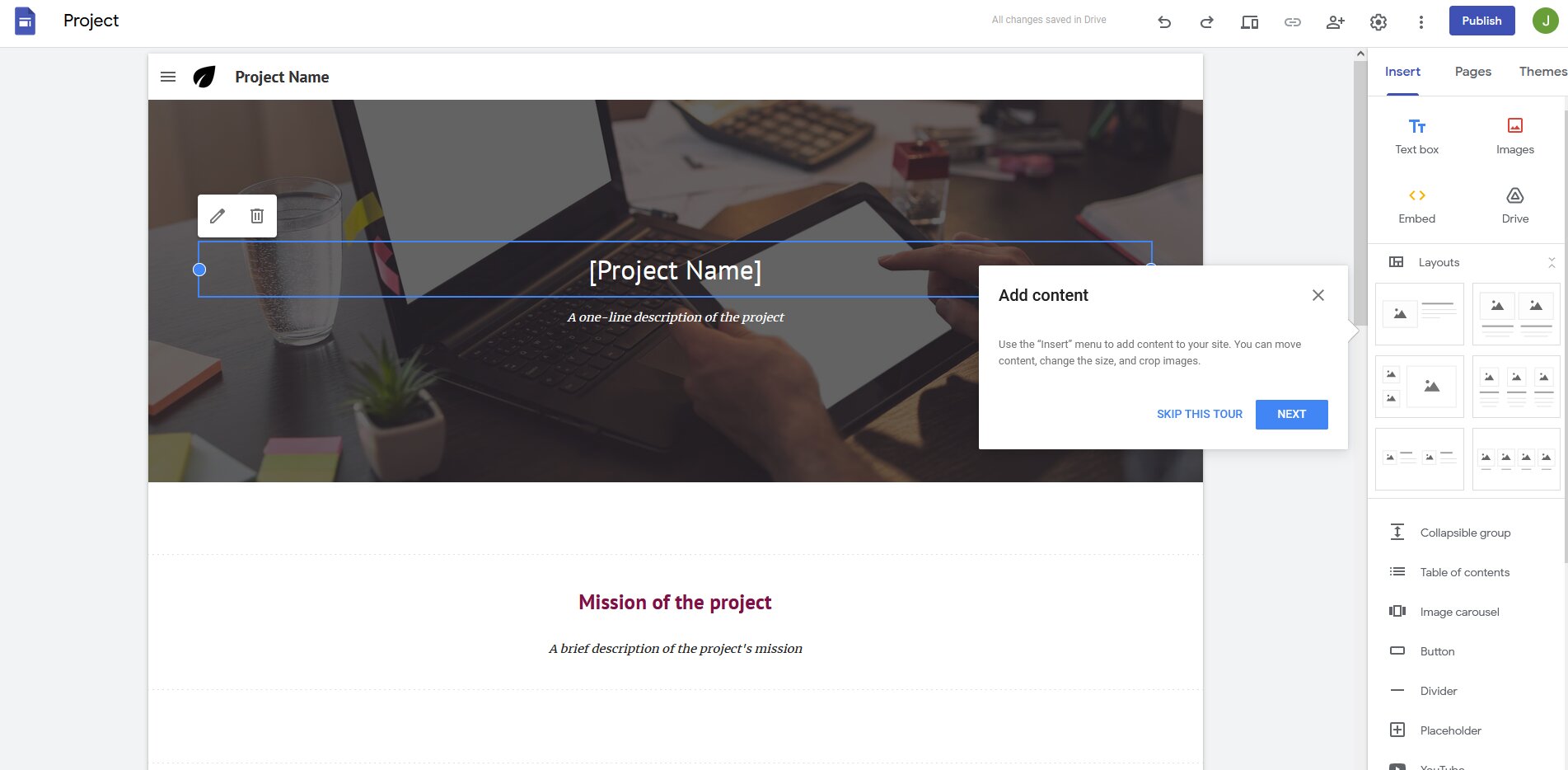Introduction
Welcome to the world of event organization and scheduling, where Google Calendar reigns supreme. With its intuitive interface and seamless integration across devices, Google Calendar has become the go-to tool for managing personal and professional events. Among its many features, one that stands out is the ability to publish events.
Publishing an event in Google Calendar allows you to make it accessible to a wider audience outside your own calendar. Whether you are organizing a conference, seminar, workshop, or even a personal gathering, publishing the event ensures that it reaches the right people and increases attendance.
In this article, we will dive into the concept of publish events in Google Calendar, explore the reasons why it is useful, discuss how to publish an event, and highlight the advantages of using this feature. Additionally, we will provide some handy tips to make the most out of publish events in Google Calendar.
So, if you are ready to take your event planning to the next level and attract a larger audience, let’s get started with the world of publishing events in Google Calendar.
What is Publish Event in Google Calendar?
Publishing an event in Google Calendar allows you to share it with individuals and groups who are not directly connected to your calendar. When you publish an event, it becomes publicly accessible, and anyone with the link can view the event details and potentially add it to their own calendar.
By default, events in Google Calendar are private and can only be viewed by the individuals invited to them. However, with the publish event feature, you have the option to expand the reach of your event and make it available to a wider audience, such as customers, colleagues, or community members.
When you publish an event, Google Calendar generates a unique URL or link for that specific event. You can share this link through various channels, such as email, social media, or embedded on your website, allowing people to access the event details without the need to sign in to Google Calendar.
It’s important to note that publishing an event does not grant editing or managing permissions to the viewers. They can only view the event details and add it to their calendars if they choose to. This ensures that you have control over the event and can make any necessary changes or updates without affecting the published version.
Publishing an event in Google Calendar is a convenient way to promote and share important dates, deadlines, and upcoming events. Whether you are organizing a public workshop, launching a new product, or announcing a webinar, using the publish event feature can significantly increase the visibility and attendance of your event.
Now that we understand what publish event in Google Calendar means, let’s explore the benefits that come with using this feature and how it can enhance your event planning and organization process.
Why use Publish Event in Google Calendar?
The publish event feature in Google Calendar offers several advantages that make it a valuable tool for event organizers. Let’s delve into the reasons why you should consider using this feature:
- Increased visibility: Publishing an event makes it accessible to a wider audience outside of your direct calendar contacts. By sharing the event link through various channels, you can reach potential attendees who may not have been aware of the event otherwise. This increased visibility can lead to higher attendance and greater engagement.
- Easy sharing: Google Calendar makes it effortless to share the event link with others. You can simply copy and paste the link in emails, social media posts, newsletters, or embed it on your website. This allows you to promote your event across different platforms, making it more convenient for people to discover and add to their own calendars.
- Flexibility: The publish event feature provides flexibility in managing your event. Even after sharing the event link, you retain control over the event details and can make changes or updates as needed. Whether it’s modifying the time, location, or adding additional information, you can ensure that attendees have the most up-to-date information about the event.
- Improved organization: By using publish events, you can keep your personal and professional calendars separate. You can focus on your core activities in your primary calendar while utilizing the publish event feature to effectively manage and share specific events with a broader audience. This organizational efficiency helps in maintaining a clear distinction between personal and public events.
- Engagement tracking: When you publish an event, Google Calendar provides insights into how many people have viewed and added the event to their calendars. This data allows you to gauge the level of interest and engagement generated by your event. It also helps to assess the success of your promotional efforts and make any necessary adjustments to attract more attendees.
These are just a few of the reasons why using the publish event feature in Google Calendar can be a valuable asset for event organizers. From increasing visibility and convenience to maintaining control and gaining insights, this feature offers numerous benefits that can greatly enhance your event planning and organization process.
How to Publish an Event in Google Calendar
Publishing an event in Google Calendar is a straightforward process with just a few simple steps. Here’s a step-by-step guide on how to publish an event:
- Create the event: Start by creating the event in your Google Calendar. Provide all the necessary details such as the event title, date, time, location, and any additional information you want to include.
- Access event options: Once you have entered the event details, click on the event to access the editing options. Look for the “Publish event” option, which is usually located in the event settings or sharing settings.
- Choose the publishing option: Select the “Publish event” option, and a unique URL or link for the event will be generated. You can customize the privacy settings if needed, but by default, the event will be set to public.
- Copy the event link: After clicking on the “Publish event” option, you will be provided with the event link. Copy the link to your clipboard so that you can easily share it with others.
- Share the event link: Now that you have the event link, you can share it through various channels such as email, social media, or embedding it on your website. Make sure to provide a brief description or invitation along with the link to entice potential attendees to join the event.
- Track engagement: Once the event is published, Google Calendar provides insights into the number of views and additions to individual calendars. This allows you to track engagement and analyze the success of your event promotion efforts.
That’s all it takes to publish an event in Google Calendar. By following these steps, you can easily share your events with a wider audience, increase visibility, and attract more attendees to your upcoming gatherings and activities.
Advantages of Using Publish Event in Google Calendar
The publish event feature in Google Calendar brings numerous advantages for event organizers, making it a valuable tool to enhance event promotion and attendance. Let’s explore some of the key advantages of using publish event in Google Calendar:
- Increased reach: By publishing an event, you extend its visibility beyond your immediate contacts. The event becomes accessible to a wider audience, allowing you to attract more attendees and increase event participation.
- Convenient sharing: Google Calendar makes it easy to share the event link through various channels such as email, social media, or embedding it on your website. This convenience enables you to reach potential attendees through their preferred communication platforms.
- Better engagement: When you publish an event, you provide a seamless way for individuals to add the event to their own calendars. This not only increases the likelihood of attendance but also helps attendees stay informed about any updates or changes to the event.
- Organizational efficiency: Using publish event in Google Calendar allows you to separate your personal and professional events. You can keep your primary calendar focused on your core activities while conveniently managing and sharing specific events with a wider audience.
- Flexibility for event updates: Even after sharing the event link, you retain control over the event details. You can easily make changes or updates to the event without affecting the published version. This ensures that attendees have the most up-to-date information about the event.
- Insights into engagement: Google Calendar provides insights into the number of views and additions to individual calendars for your published event. This data allows you to gauge the level of interest generated, track engagement, and make informed decisions to optimize your event promotion strategies.
- Wider event promotion: When you publish an event, you open up opportunities for others to share the event link with their networks. This can create a ripple effect, extending the reach of your event promotion beyond your direct audience and increasing the chances of attracting even more attendees.
By leveraging the advantages of using publish event in Google Calendar, you can maximize the visibility, engagement, and success of your events. Whether you are organizing a professional conference, a community gathering, or a personal celebration, this feature offers valuable tools to effectively promote and manage your events.
Tips for Using Publish Event in Google Calendar
While using the publish event feature in Google Calendar is relatively straightforward, implementing a few tips can help you make the most out of this powerful tool. Here are some handy tips for using publish events in Google Calendar:
- Optimize event details: When creating an event, ensure that you provide clear and comprehensive event details. Including a captivating event title, informative description, relevant keywords, and any necessary instructions or prerequisites will make it more enticing for potential attendees.
- Add eye-catching visuals: Visuals play a crucial role in capturing attention. Consider adding visually appealing images or graphics to your event. This can help create a professional and visually engaging event listing, making it more appealing when shared across different platforms.
- Promote across various channels: Don’t limit yourself to just one channel. Utilize multiple platforms to promote your event, such as social media, mailing lists, websites, and relevant online communities. The more exposure your event receives, the higher the chances of attracting a larger audience.
- Encourage sharing: Include social sharing buttons or links in your event listing, making it easy for attendees to share the event with their networks. By encouraging sharing, you can leverage the power of word-of-mouth marketing and potentially reach a wider audience.
- Monitor event engagement: Regularly check the engagement metrics provided by Google Calendar, such as the number of views and additions to individual calendars. Analyzing this data can help you understand the effectiveness of your promotion strategies and make any necessary adjustments to improve attendance.
- Keep the event updated: As the event approaches or if there are any changes, ensure that you update the event details. This includes modifying the date, time, location, or any other relevant information to keep attendees well-informed and avoid any confusion.
- Engage with potential attendees: Actively respond to inquiries, comments, or feedback related to your event. Engaging with potential attendees shows that you are dedicated to creating a positive experience and can help build trust and excitement around the event.
- Utilize event reminders: Encourage attendees to set reminders for the event by providing information on how they can do so. Reminders can help ensure that attendees do not forget about your event and increase the chances of their attendance.
By following these tips, you can optimize your use of publish events in Google Calendar and increase the visibility, engagement, and success of your events. Utilize the features and flexibility provided, stay proactive in promotion, and provide a seamless experience to potential attendees.
Conclusion
Google Calendar’s publish event feature offers event organizers a powerful tool to increase the visibility, attendance, and success of their events. By publishing an event, you can make it accessible to a wider audience and share it through various channels, allowing more people to discover and add the event to their calendars.
In this article, we explored what publish event in Google Calendar entails and why it is beneficial. We discussed how to publish an event, including steps such as creating the event, accessing the event options, choosing the publishing option, copying the event link, and sharing it with others. We also highlighted the advantages of using publish event in Google Calendar, such as increased reach, convenient sharing, improved engagement, organizational efficiency, flexibility for event updates, and insights into engagement metrics.
Moreover, we provided some useful tips for making the most out of publish events in Google Calendar. These tips emphasized optimizing event details, adding eye-catching visuals, promoting events across various channels, encouraging event sharing, monitoring event engagement, keeping events updated, engaging with potential attendees, and utilizing event reminders.
By incorporating these tips and leveraging the features of publish events in Google Calendar, event organizers can effectively promote their events, attract more attendees, and ensure a seamless experience for all participants. Whether you are organizing professional conferences, community gatherings, or personal celebrations, utilizing the publish event feature in Google Calendar allows you to take your event planning to the next level.
So, embrace the power of publish events in Google Calendar and watch as your events gain increased visibility, engagement, and success. Start using this feature today and unlock the full potential of your event organization efforts.







